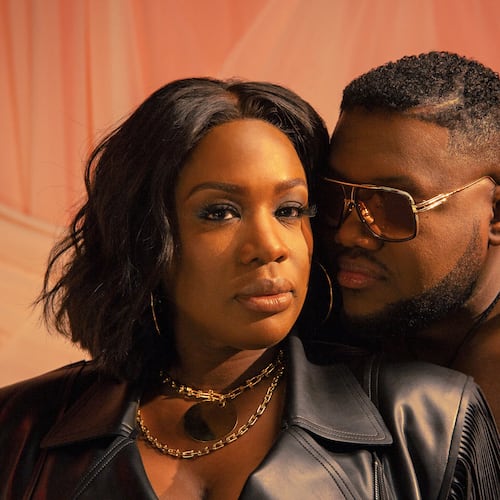Hiroshima's Dan Kuramoto can trace Atlanta's love at least as far back as the mid-1980s, when the band was scheduled to play at a gig in Piedmont Park — though not, apparently, the Atlanta Jazz Festival.
It was raining all day, he remembers, so the band stayed at its hotel, figuring it was too wet to perform.
"We got a phone call," says Kuramoto, the band's co-founder and multi-instrumentalist, "and someone told us that there were 1,500 people who had sat in the rain all day waiting for us to come out and play. So we did.
"It was raining the whole time, and our manager spent 45 minutes to make sure the electricity was grounded so we wouldn't get killed.
"It's one of the most amazing shows we've ever played."
So amazing, in fact, that bass player Dean Cortez met his future wife Marti at a jam session the band held afterward at the hotel bar.
Now, that's love.
Hiroshima has been feeling the love ever since the group burst out of Los Angeles' eclectic and electric music scene in the late 1970s with its groundbreaking melding of traditional Japanese instruments and the American rhythm and blues and modern jazz that came to be called smooth jazz. Fans blissed out on Japanese elements such as the koto, a zither-like string instrument; the shakuhachi, which evokes a flute-like sound; and the thundering taiko drums.
Hiroshima mixed these with acoustic jazz staples such as the saxophone and piano, then took it in a new direction with electric piano and synthesizers — exciting smooth-jazz fans and annoying some traditionalists.
This sublime and sometimes funky sound polarized purists in both countries, but more so in Japan. Kuramoto understood: "That's nobody fault. Our community was the most at risk, because it stood to lose the most."
Regardless, the band resonated with the African-American community, building fan bases in Atlanta, Detroit, Chicago and Washington, D.C.
"We played all over L.A.'s black communities," Kuramoto recalled. "The first time we played Crenshaw High, everybody was laughing at the beginning, and by the end everybody was loving it and was cheering us.
Hiroshima has sold 4 million records from its 14 albums, including 1985's "Another Place," which went gold on the coattails of the popular single "One Wish."
Hiroshima's sound has evolved over its 30-year career. "Little Tokyo" continues the band's shift to all-instrumental music after using a variety of vocalists. Not to worry, Kuramoto assures; the band's next album, "Legacy," due out this fall will feature vocals again.
"It's not like we give in to things," he says.
"We just keep flowing with them."
About the Author
Keep Reading
The Latest
Featured
